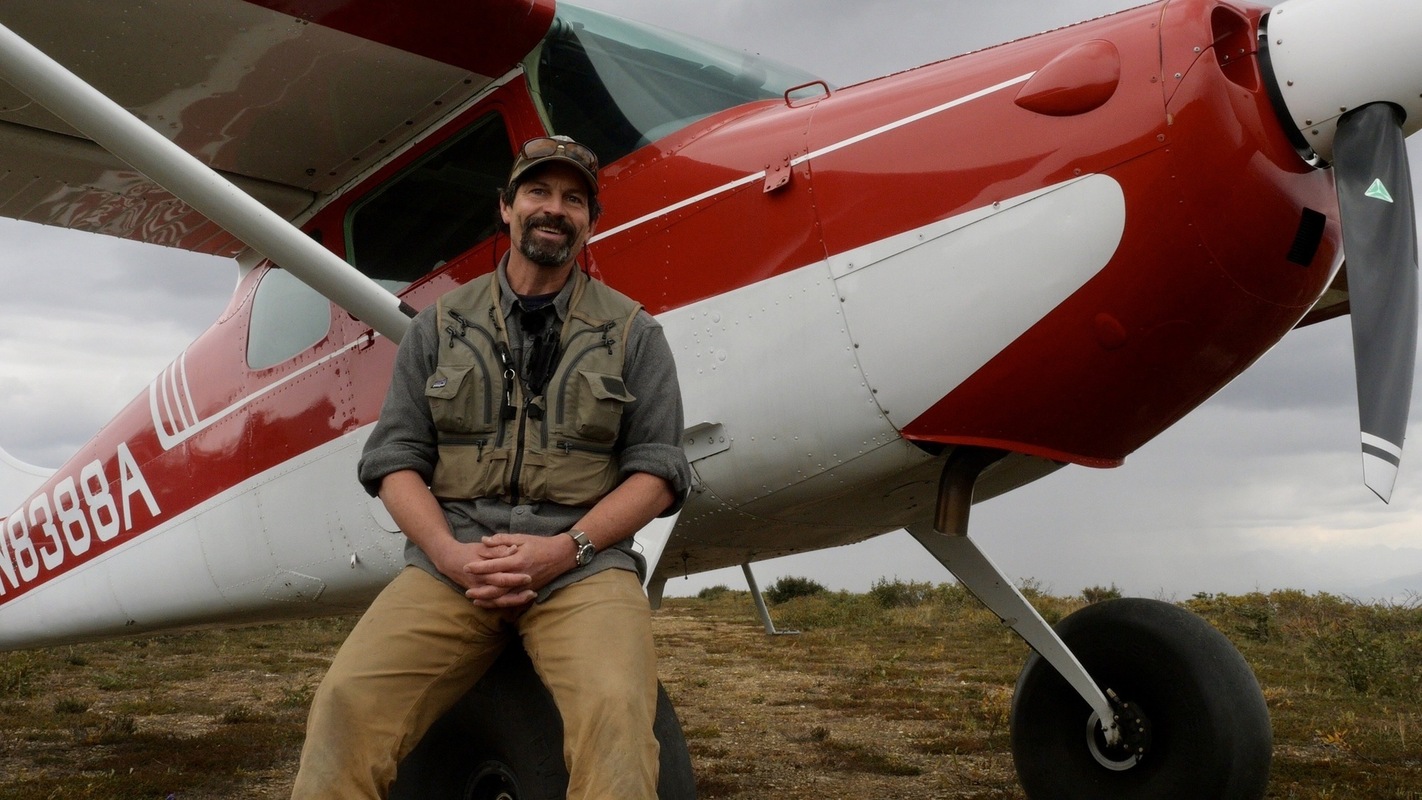by Simon Hamm (owner, Camp Denali & North Face Lodge)
Today is the day that our early crew was to have flown to Kantishna to begin taking down the shutters, undoing winter's mischief, and launching into facility improvements for the upcoming summer. It is typically a day of celebration, hard work, and excited anticipation of the season ahead. Instead, it has become the occasion to announce that Camp Denali and North Face Lodge will not operate during 2020- a first in our 69-year history.
A canceled opening notwithstanding, the pull of spring ritual remains strong, and so on Sunday I hopped in our small Cessna airplane and flew out for an annual fix of springtime in Denali. It was warm, calm, and “severe-clear”- a beautiful day for flying. Landing on the airstrip and hiking the four miles back to our lodges, untouched since September, I could almost imagine that we still live in a world without COVID-19. I could touch any doorknob without hesitation. I could scratch my nose when the season’s first mosquito came my way. As one of a handful of people in a six-million-acre park, I was less concerned with social distancing than maintaining distance from the grizzly whose fresh tracks I was following. While the time on the ground felt like a privileged cross between a time capsule and an escape pod, the in-flight time afforded a chance to reflect on a few sobering aviation truisms, and how they relate to the prospect of a 2020 operating season:
"The cockpit is no place for an optimist"
Thank you Lowell Thomas Jr. for instilling this when I was first taking to the air. Presented with challenges in our path, I cannot begin to count the times I have seen our staff accomplish the seemingly impossible with grit and aplomb. It becomes seductive to imagine that a robust, can-do attitude will see us through yet again. As the stakes go up, however, the can-do mentality becomes less an asset and more of a liability. A responsible wilderness lodge operator, like a good pilot, must constantly be asking, what is the worst that could happen? In normal seasons, we are comfortable with the answers, supported by our redundant systems and contingencies developed over seven decades. With COVID-19, there is no safety net that is in our control. There is no level of staffing that can adequately rise to the occasion. There is no Plan B for when it reaches our lodges. Another piece of hard-won wisdom posits that there are old pilots, and there are bold pilots, but there are no old, bold pilots. A pandemic is no place for unfounded optimism.
"Aviation in itself is not inherently dangerous. But to an even greater degree than the sea, it is terribly unforgiving of any carelessness, incapacity or neglect"
Among the leading causes of aviation crashes is a phenomenon known as CFIT, or Controlled Flight Into Terrain. The idea is that the aircraft was mechanically sound, running normally and responding correctly to pilot inputs right up until it hit the side of the mountain. Seldom does CFIT occur in good flying conditions. It happens when you can’t adequately sense and assess the rapidly-changing landscape just beyond your wingtips, leaving insufficient time to react when rocks and trees emerge suddenly through the clouds. There are systems for safely threading this needle, but they require both experience and proficiency in order to have trust in them. Kantishna lacks adequate testing, quarantine, and appropriate medical recourse to permit a clear grasp of the rapidly shifting terrain around us. Succumbing to the temptation to fly thus impaired is known as scud-running, and it regularly accounts for accidents that are tragic in their preventability.
"Better to be on the ground wishing you were flying, than to be flying, wishing you were on the ground."
We take tremendous delight and satisfaction in sharing Denali with visitors. At the core of our enterprise, our mission includes providing learning experiences, fostering stewardship of the natural world, and cultivating bonds of community. While we might thread the needle of COVID-19 this season, and safely execute the mechanical aspects of transportation, lodging, dining and hiking, we understand it would be a greatly diminished version of Camp Denali and North Face Lodge, robbed of the intangible offerings that make it an endeavor we truly believe in. The decision to wait on better flying weather in this instance is not without significant sacrifice. But that mustn’t cause us to lose perspective: it is supposed to be a pleasure flight, after all. It is not a get-there-at-any-cost mission. The decision to wait out the storm is simultaneously an expression of belief that in due course, the clouds will part and the sun will return.
Flying has been entwined with Camp Denali ever since its founders, two of them Women Airforce Service Pilots, first winged their way to Kantishna in 1951. From their cockpits I imagine Ginny Hill Wood and Celia Hunter would relate to how aviation has a certain way of casting actions and their possible outcomes into palpable relief. Fortunately for everyone and everything that they touched in their long lifetimes, they, and Morton Wood, and our friend Lowell Thomas Jr., possessed the wisdom and the patience to respect the weather. They serve as our model of how to survive to one day become old pilots.
In anticipation of the return of blue skies and tail winds,
Simon Hamm




